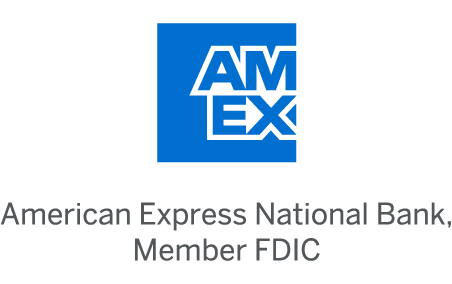Learn What Happens When You Leave a Lot of Money in Your Savings Account
KEY POINTS
- Many high-yield savings accounts are offering 4% to 5% APYs right now, so you could earn a hefty return on your savings.
- Because the stock market offers greater long-term returns, it's a better place for your retirement savings.
- Use your savings account to store your emergency fund and money for upcoming expenses.
It's good to have a healthy amount of money in your savings account. Everyone needs money for emergencies, for starters. You'll probably also want to have cash set aside for big future expenses -- a summer getaway, a down payment on a home, things like that.
Believe it or not, some people leave too much money in their savings account. It's not the worst problem to have, but it is worth correcting. To understand why, here's a look at the benefits and drawbacks of doing this.
You'll earn plenty of interest -- if you're using a high-yield savings account
Let's start with the good news. Interest rates are high right now, so if you have a lot of money in your savings account, you could be earning sizable interest payments each month.
"Could" is the operative word there, because not all savings accounts are paying out those high rates. The average savings account rate nationwide is just 0.45%, according to the FDIC. Some big banks still offer as little as 0.01%.
Our Picks for the Best High-Yield Savings Accounts of 2024
|
Capital One 360 Performance Savings

APY
4.25%
Rate info
See Capital One website for most up-to-date rates. Advertised Annual Percentage Yield (APY) is variable and accurate as of April 11, 2024. Rates are subject to change at any time before or after account opening.
Min. to earn
$0
|
APY
4.25%
Rate info
See Capital One website for most up-to-date rates. Advertised Annual Percentage Yield (APY) is variable and accurate as of April 11, 2024. Rates are subject to change at any time before or after account opening.
|
Min. to earn
$0
|
|
American Express® High Yield Savings

APY
4.25%
Rate info
4.25% annual percentage yield as of June 26, 2024
Min. to earn
$1
|
APY
4.25%
Rate info
4.25% annual percentage yield as of June 26, 2024
|
Min. to earn
$1
|
|
Citizens Access® Savings

APY
4.50%
Min. to earn
$0.01
|
APY
4.50%
|
Min. to earn
$0.01
|
The best high-yield savings accounts, on the other hand, are offering rates in the 4%-to-5% range. The highest I've seen recently is 5.36%.
If your savings account has a 5% APY, then you earn about $500 in interest per year for every $10,000 in your account. Just keep in mind that rates are variable, meaning they can change. They could go down at any time, in which case you'd earn less.
You could be shortchanging your retirement
Savings accounts are well-suited for storing money you'll need in the next few years. They're also perfect for your emergency fund, since you can withdraw from them any time. But they're not right for your retirement savings.
The APYs of 4% to 5% that we're seeing right now are excellent rates for savings accounts. They're still well below the kinds of returns you could get by investing in stocks, though.
While the stock market's returns vary from year to year, over long periods of time, it has been one of the best ways to build wealth. Over the past 50 years, it has delivered an average return of about 10% per year.
To show what kind of difference this makes, imagine you have $25,000 in retirement savings. If you get a 5% annual return for 30 years, you'll have $108,049. If you get a 10% annual return, you'll have $436,235. That higher annual return results in $328,186 more wealth.
How much money should you have in your savings?
To figure out the right amount for your savings, add up what you'll need for your emergency fund and any upcoming expenses.
It's recommended to save at least three to six months of living expenses for emergencies. If your living expenses are $5,000 per month, then you'd want $15,000 to $30,000 in emergency savings.
As far as upcoming expenses, this is anything you'll need to spend money on in the future, outside of your regular bills. Here are some examples:
- Vacations
- A new car
- Youth sports fees for your kids
- Home maintenance
- Professional training
It takes a little time to go over all your upcoming expenses and estimate how much they'll cost. But this is a good way to be financially prepared so you don't need to scramble or go into debt when these costs come up.
By doing this exercise, you can see if you're leaving too much money in your savings account. If you are, consider investing some of that money via a retirement account or a taxable brokerage account.
These savings accounts are FDIC insured and could earn you 11x your bank
Many people are missing out on guaranteed returns as their money languishes in a big bank savings account earning next to no interest. Our picks of the best online savings accounts could earn you 11x the national average savings account rate. Click here to uncover the best-in-class accounts that landed a spot on our short list of the best savings accounts for 2024.
Our Research Expert
We're firm believers in the Golden Rule, which is why editorial opinions are ours alone and have not been previously reviewed, approved, or endorsed by included advertisers. The Ascent, a Motley Fool service, does not cover all offers on the market. The Ascent has a dedicated team of editors and analysts focused on personal finance, and they follow the same set of publishing standards and editorial integrity while maintaining professional separation from the analysts and editors on other Motley Fool brands.
Related Articles
View All Articles